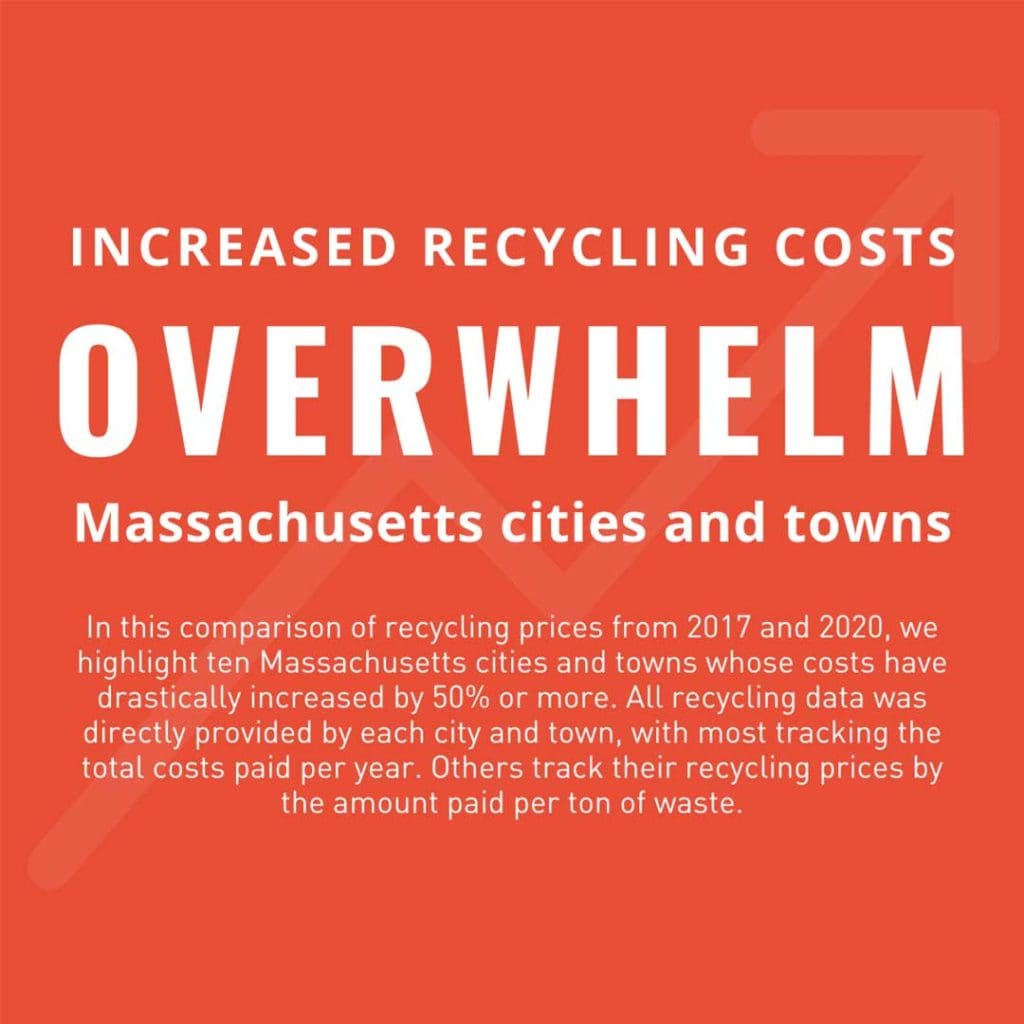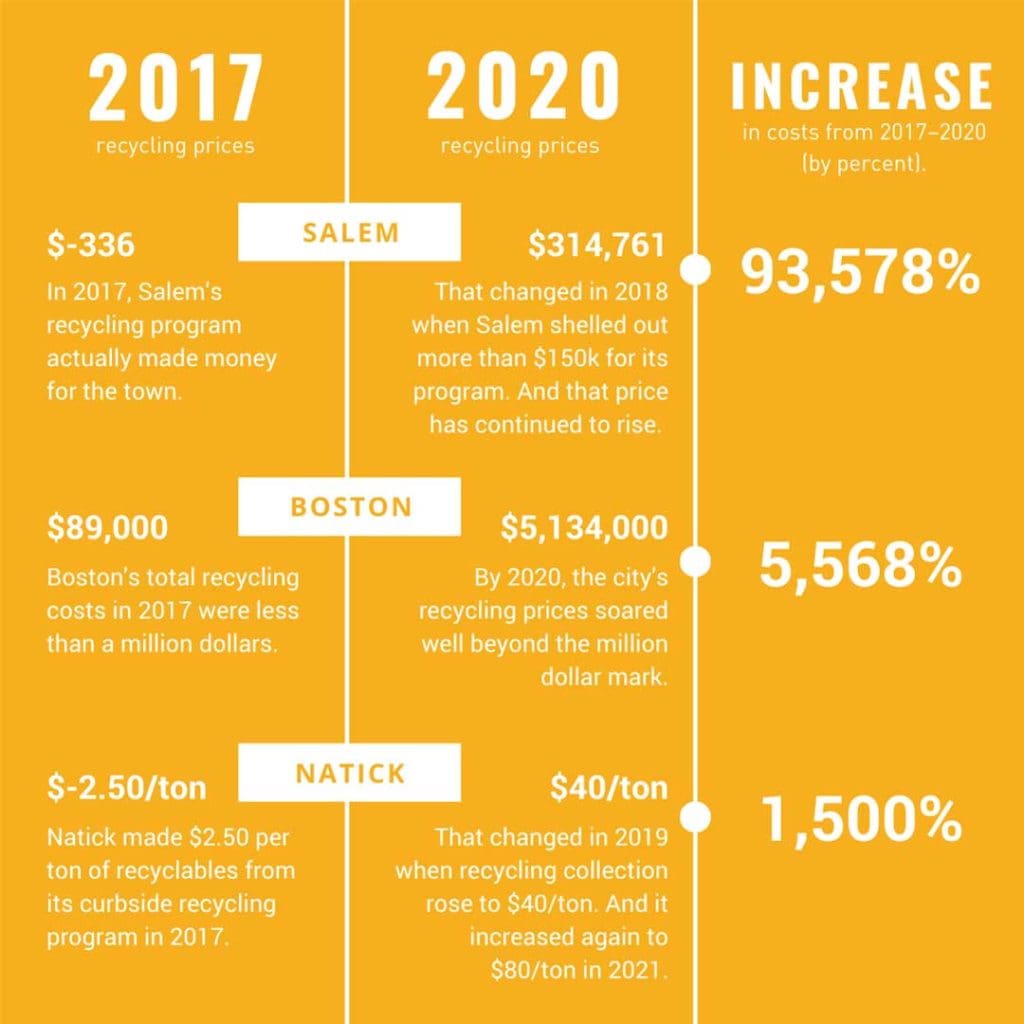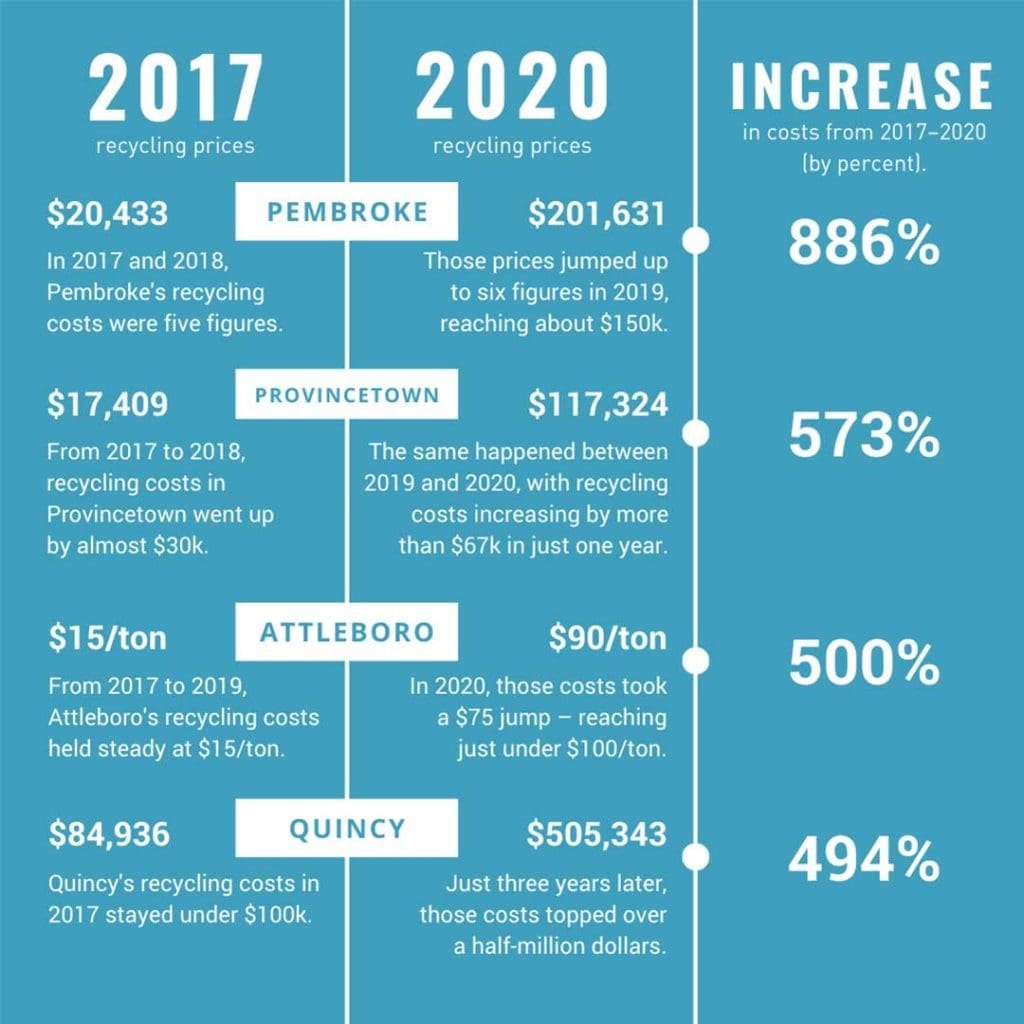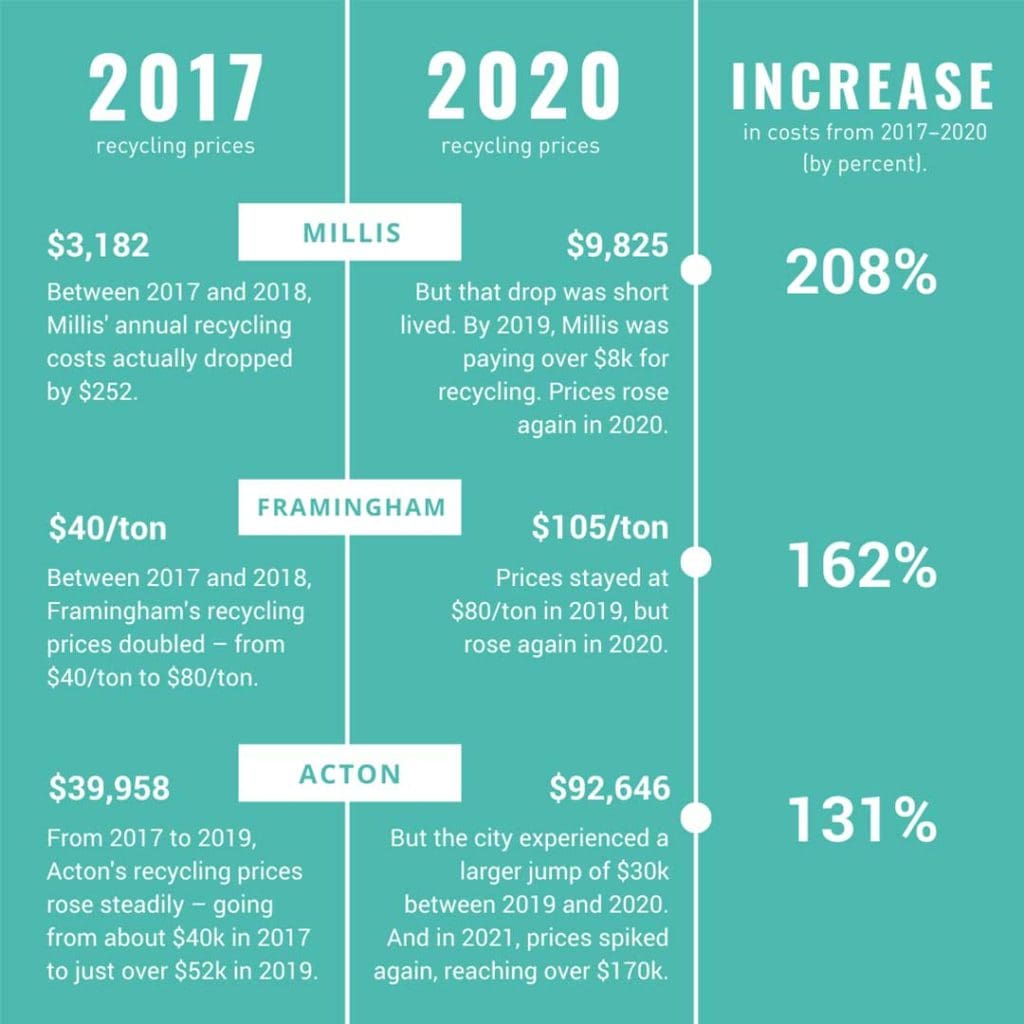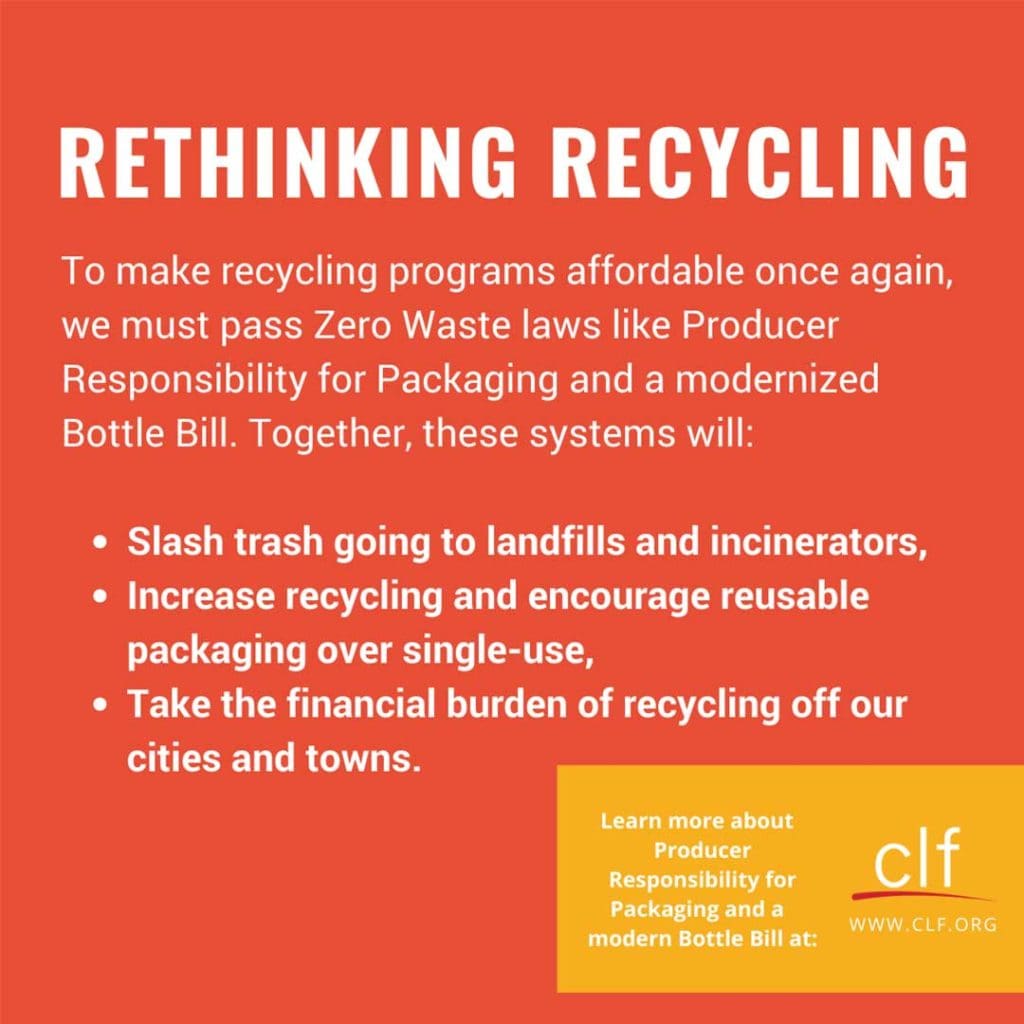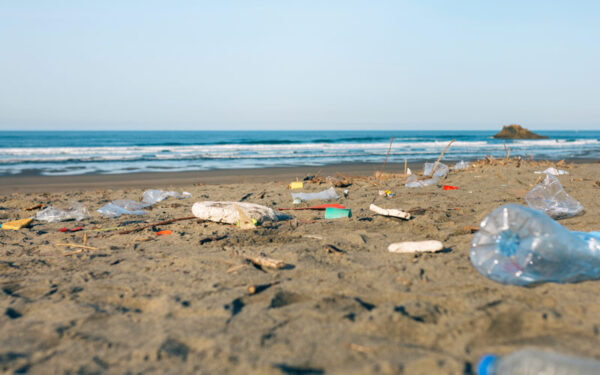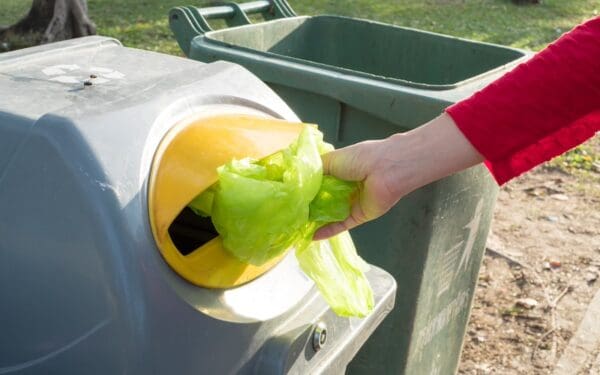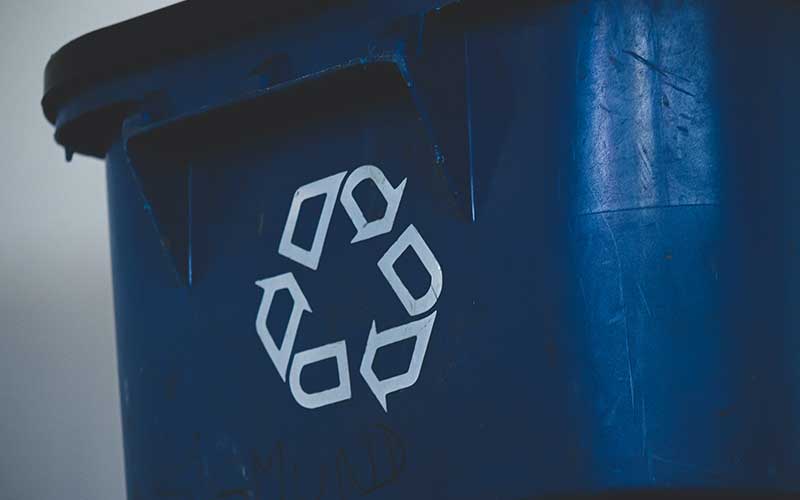
Zero Waste systems reduce our trash and increase recycling rates, while taking the financial burden of recycling off of our cities and towns. Photo: Sigmund on Unsplash
Over the past few years, recycling prices across the U.S. have soared, with some cities and towns now spending millions of dollars on their programs. The cause? A poorly designed system based on passing-the-buck.
For years, the U.S. collected our recyclables only to ship billions of pounds of them across the sea for China to deal with. But when China stopped accepting recyclables from the U.S. and other western countries in 2018, our already insufficient recycling system broke. Now, cities and towns that once made money from selling recyclable materials to China are struggling to keep their programs afloat.
To understand the financial burden communities across New England are facing, I spent the better part of last year collecting recycling data from Massachusetts cities and towns. And what I found is jarring. Skyrocketing recycling prices are taking a toll on town budgets. That means that now, more than ever, we need zero-waste legislation to not only bring those costs down, but to better use taxpayer dollars that make up city and town budgets.
A Case Study: Massachusetts’ Recycling Prices
Of Massachusetts’ 351 cities and towns, almost 150 have curbside recycling programs. So, to begin my research, I went straight to the source – contacting about 140 communities with curbside programs. My goal: to track their recycling prices between 2017 and 2020.
Sixty-two communities responded to my request. Here’s a snapshot of what I learned:
- 57 of the 62 cities and towns saw increases in their recycling prices between 2017 and 2020.
- For about half of those communities, that increase was drastic – with prices soaring by 50% or more.
- The City of Newton’s costs increased by almost $1 million during that period.
- Boston went from paying just $89,000 per year in 2017 to more than $5,000,000 per year in 2020.
- Springfield’s recycling prices jumped from roughly $550,000 in 2017 to $669,800 in 2021.
These graphics highlight 10 Massachusetts cities and towns with dramatic increases in recycling costs:
High Recycling Prices Take a Toll on Our Communities
Spending upwards of a million dollars a year on recycling is untenable for most cities and towns. And these increasing costs inevitably take a toll on city and town budgets. If our communities want to keep their recycling programs up and running, then they have no choice but to pay. But where does the extra money come from to meet the demands of rising recycling prices? Unfortunately, it often comes from other city departments.
One city official I spoke with shared that, in 2018, they reallocated money from the city’s salary budget to help cover escalating recycling prices. But city and town employees do important work that impacts our communities – they deserve to be paid well and not be understaffed.
Reallocating funds from essential community services to cover rising recycling costs has an enormous impact. It’s clearly unsustainable. However, solutions exist – right now – that can help cities and towns lower their recycling costs.
Rethinking Recycling with Zero Waste Initiatives
Our recycling system may be broken, but we have solutions that can help make these programs affordable again, increase product recyclability, and alleviate the financial burden on city and town budgets. So, let’s take a closer look at two Zero Waste systems that New England states can implement to help make a difference:
Extended Producer Responsibility for Packaging – Rather than burdening cities and towns with the cost to manage waste and recycling, Producer Responsibility laws require producers, like Amazon, to pay for the waste they create. The more difficult the packaging is to recycle, the more producers pay – motivating them to create more sustainable packaging. Maine made history this year by passing the nation’s first-ever Producer Responsibility for Packaging bill. And now, Massachusetts is considering a similar bill. Not only does this kind of legislation bring the price of recycling down for cities and towns, but it also reduces packaging waste.
Bottle Bill – The Bottle Bill, or bottle return system, places a small fee on beverage containers. Customers get that money back when returning their empty bottles to a redemption center. While several New England states have Bottle Bills, many of them are in desperate need of an update, including Massachusetts’ program. Thankfully, the Commonwealth is considering a Bottle Bill Expansion that would increase the fee from 5 cents a container to 10 cents. It would also expand the types of beverage containers collected at redemption centers. Not only would this remove materials like glass from curbside recycling, which is heavy and expensive as recycling fees are based on tonnage, but it would also lower the price of recycling for cities and towns.
Advocating for Change
It’s clear from my research that recycling prices have gotten out of control. What’s more, our cities and towns are moving valuable funding from other departments, like staff salaries, parks, and education, to pay off these rising costs. Our communities deserve better. But to initiate change, we need to advocate for better systems.
Alongside my CLF colleagues, I have been meeting with Massachusetts legislators to share my research and explain how cities and towns are impacted by the drastic increases in recycling costs. And across New England, we are pushing legislators to adopt Zero Waste solutions, like Producer Responsibility for Packaging and modernized Bottle Bills. Not only will these Zero Waste systems reduce our trash and increase recycling rates, but they’ll take the financial burden of recycling off of our cities and towns.
You can help make a difference. Contact your state legislators and let them know you care about fixing our broken, expensive recycling system. Tell them to support Producer Responsibility for Packaging and the Bottle Bill Expansion to help our cities and towns lower recycling prices.


